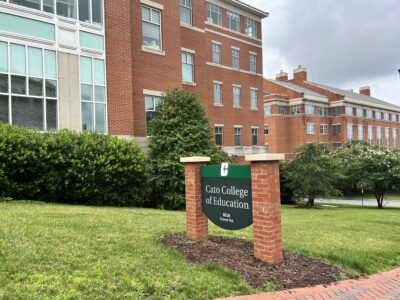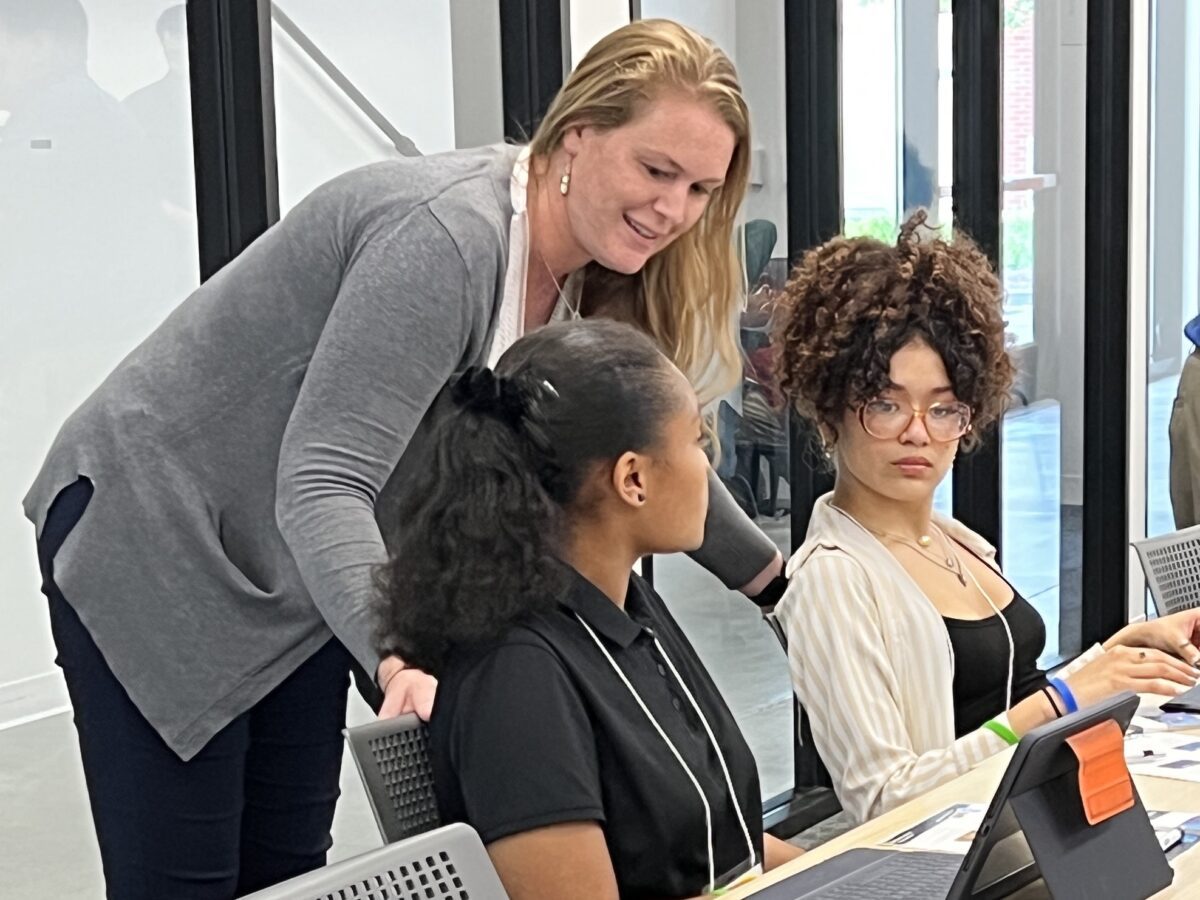

|
|
What if students could pursue learning for fun, without the pressure of grades or someone else’s schedule for mastery? That’s the question students at SparkNC’s Tech Creatives Summit considered at N.C. State University’s Hunt Library last week.
SparkNC is a brainchild of The Innovation Project, which works directly with districts to facilitate new approaches to education. The SparkNC initiative aims to accelerate learner progress along pathways to careers in high-tech fields like artificial intelligence and machine learning, software development, computer systems engineering, and cybersecurity.
At the summit, SparkNC officially launched a catalog of courses that allow students in 16 districts to take self-directed, competency-based units and earn stackable credits.
“It’s their own pace, their own time,” said Lynn Moody, senior director for partnerships at SparkNC. “They select as they want to.”
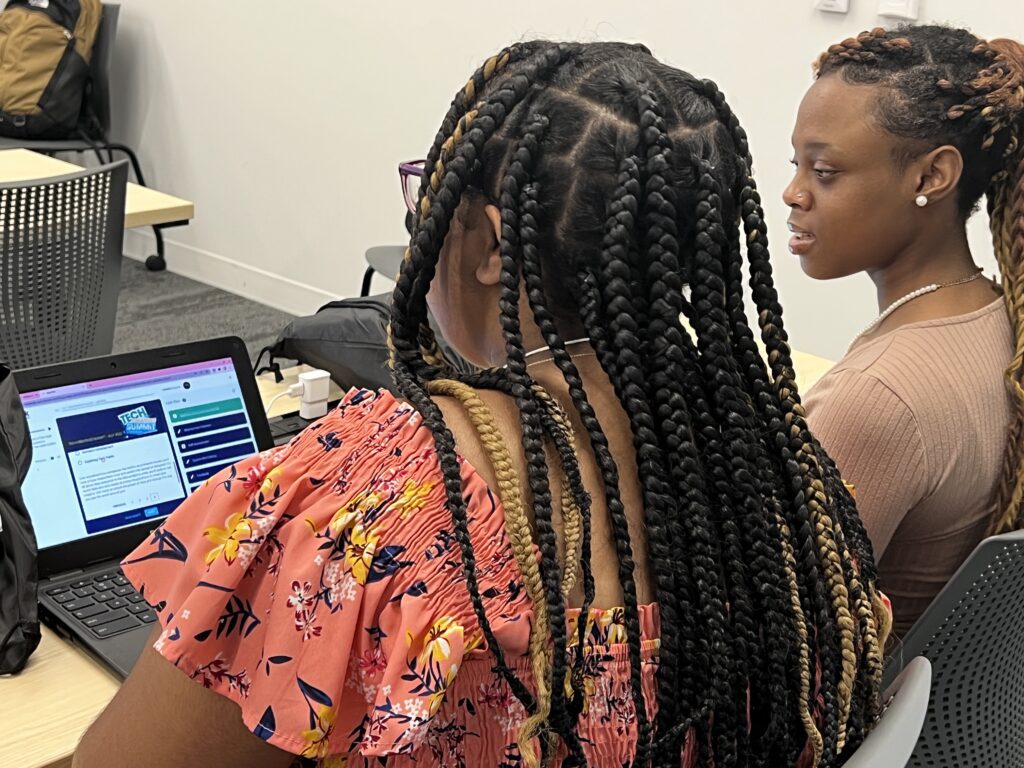

Self-directed learning that students enjoy
So, would students take these courses just because learning is fun? If the sentiment from about 100 students across 16 districts is indicative, the answer appears to be yes.
“I want to learn this stuff, I’m interested in it,” Mount Airy High student Chandler Pharr said. “I’m a senior, so I’ve got all my courses lined up already. But I’d do this anyway. Even if I didn’t get credit for it, I’d want to learn it anyway. That’s the way that school should be for everybody.”
Students move at their own pace through the courses, which were designed in partnership with educators, industry professionals, and students. In addition to teaching information needed for high-tech careers, the courses also focus on intangible skills – like teamwork, communication, and empathy. These are skills that employers say are important, Moody said.
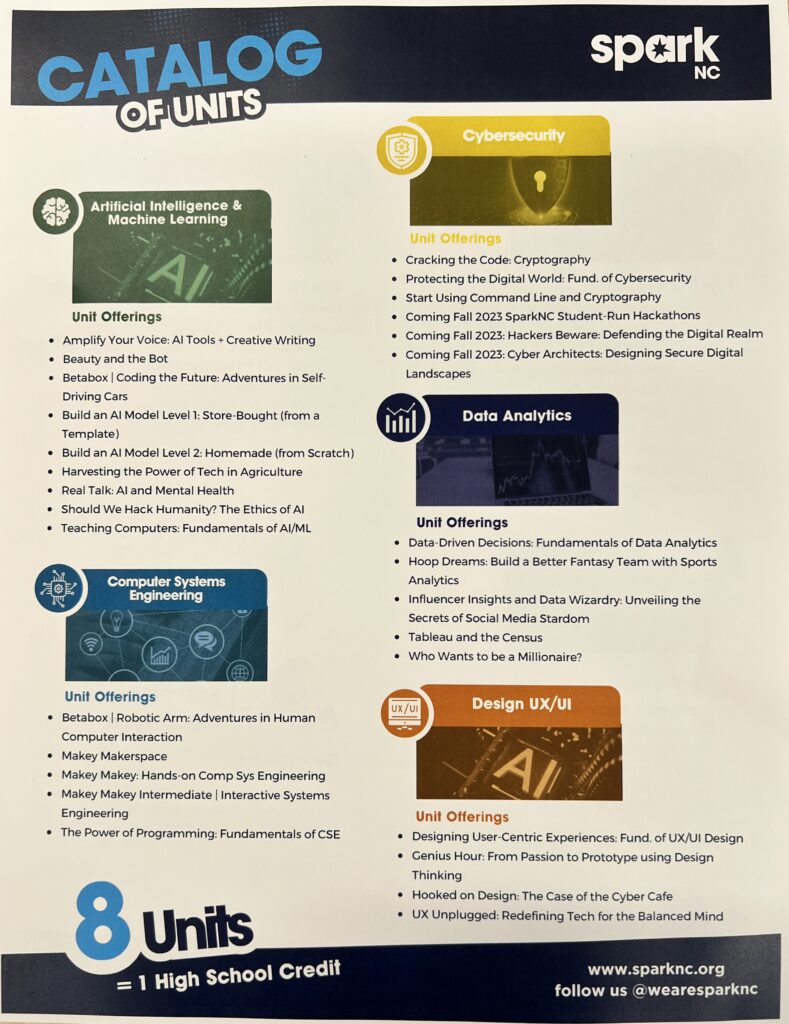

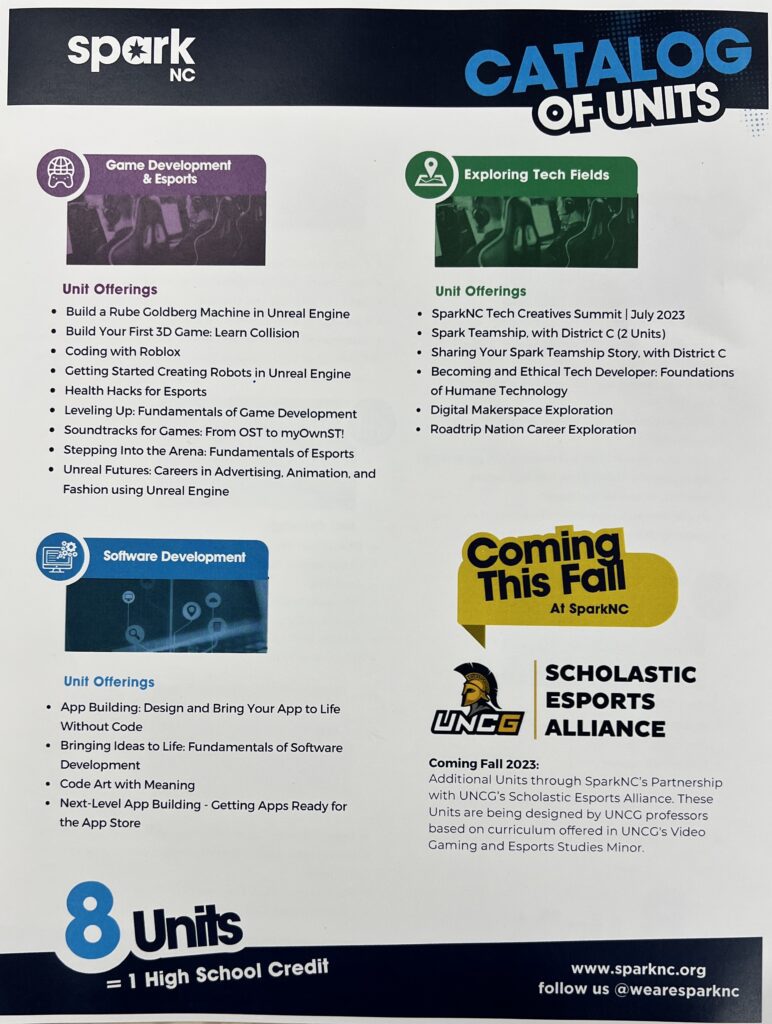

After taking eight units worth of courses, students receive a pass/fail high school credit. If a provision in the Senate’s budget proposal makes it into the final budget, that credit would satisfy the computer science credit that is now mandatory for high schoolers.
“It’s really just putting a lot of choice on learners,” SparkNC Executive Director Joe Ableidinger said. “I think choice is a word that can be associated with vouchers and charters. But this is an embedded public school choice system that’s an inter-district collaborative.”
Innovative and inter-district learning
As part of the SparkNC program, the organization funds an innovation lab in each participating district. Each lab has a bank of high-powered computers that can run programs for things like cybersecurity, AI, and gaming. The labs have spaces for collaboration and ideation.
The Innovation Project is funding one position for each lab, called a Spark leader. That Spark leader helps facilitate student learning and might bring in local industry experts. The labs are equipped with Lenovo ThinkSmarts, which allow people teaching in one lab to be broadcast to students across the state so that they can learn via livestream.
That’s because collaboration is a key component to the SparkNC model. That was on display at the Tech Creatives Summit.
The students stayed in dorms for two nights at N.C. State, networking with each other and industry professionals, and visiting companies like Apple and Red Hat.
Throughout the summit, students attended sessions that introduced several of the modules — like gaming and coding for Unreal Engine. After the three-day event, students each earned one unit toward the eight required for a high school credit.
“I don’t always engage in my classes at school, but here I’ve really been collaborating with people,” said Amiyah Bandy, a rising junior at Mount Airy High. “I don’t know, it just feels more like an open environment that I’m more comfortable in.”
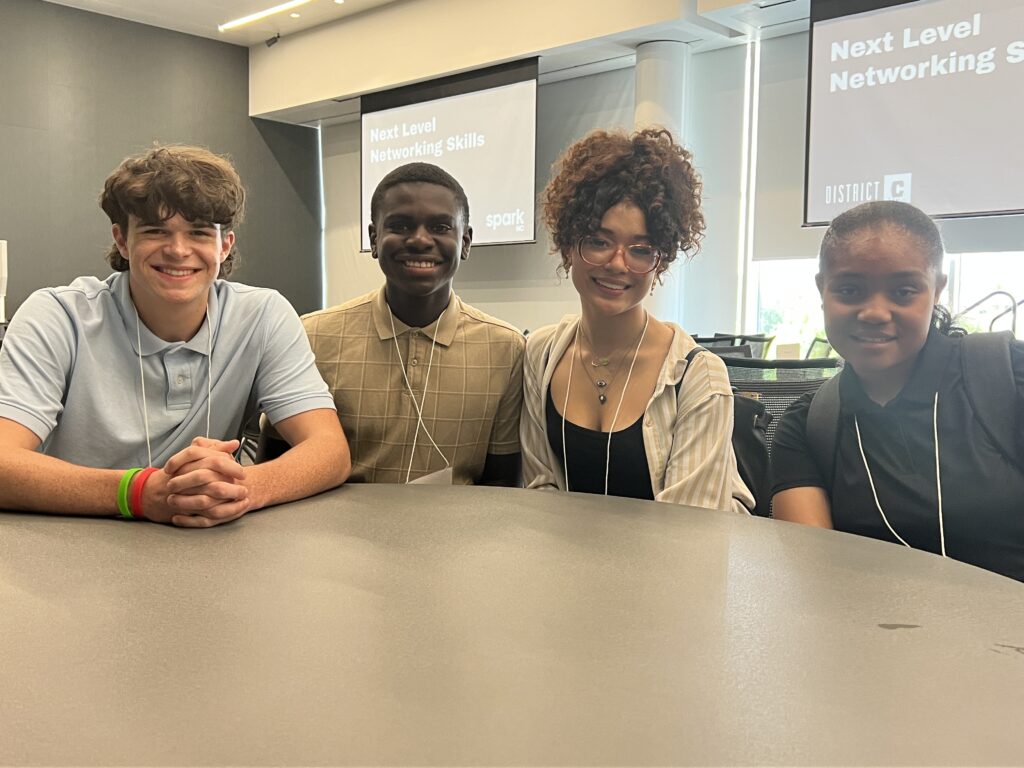

An inclusive space
Brittany Branch is the Spark leader in Mount Airy City Schools. She brought nine students to the summit at N.C. State, and the win for her is that each of those students is exposed to what high-tech careers look like and how the SparkNC stackable credits work.
If only one of those students chooses to continue with the units after the introductory summit, then the program worked, she said.
“Because they tried it and they knew it wasn’t for them instead of just thinking it wasn’t for them because of some stereotype,” Branch said. “That’s what I love about it, is it’s okay if they don’t finish, because there is no finish to the program.”
She’s been a digital learning educator in the district for several years but made the jump into the lab because it’s a space for everybody, she said. The SparkNC model intentionally seeks to break down barriers for students underrepresented in the tech space.
“It’s making space for everyone,” Branch said. “Oftentimes we say, this is available to all students, and nobody recognizes the invisible barriers that prevents the student from participating. Because at face value, it looks like it’s available to any student – any student can sign up. But there’s implicit bias, and there’s stereotypes. And I think that is what has drawn me to this program is, this program intends to break down those barriers.”



